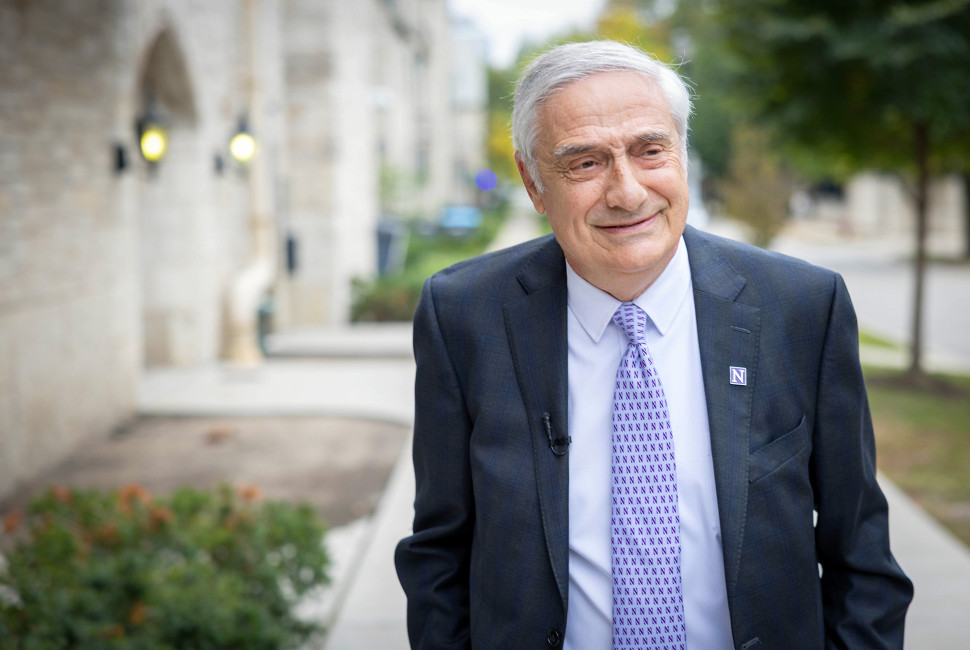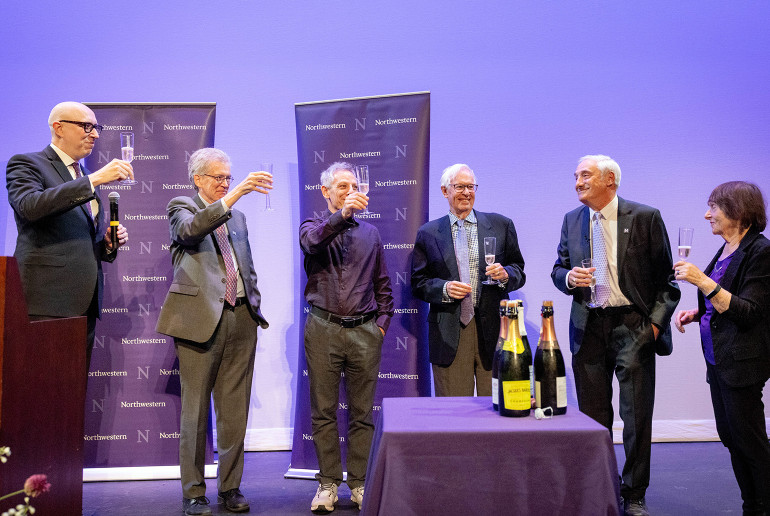Despite being honored with myriad awards, including being named a 2021 Citation Laureate for research deemed to be “of Nobel class,” Joel Mokyr believed his work was well outside the range of interests of the Nobel Prize committee.
In exchanges with colleagues about the possibility of winning a Nobel, Mokyr often joked: “I am more likely to be elected pope than win. And I am a Jew.” That was until the morning of Oct. 13 when he saw his email inbox was full of congratulatory messages. Initially he thought they were errant birthday wishes — his birthday is July 26.
Upon noticing he’d missed a call on his phone from +46 — the country code for Sweden — he suspected something big might have happened.
This was us, the tribe of economic historians, being recognized by the economics profession in a way we didn’t think possible.”
Within an hour of returning a call to the Nobel Prize committee, Mokyr and his wife, Margalit, packed up the car for the four-hour drive from Western Michigan, where they were spending the weekend, to their home in Skokie.
With Margalit driving and dog Lily in the backseat, Mokyr took calls on his cell phone, which rang nonstop with journalists requesting interviews and family, friends and colleagues offering words of congratulations.
“My 12-year-old grandson called to say he read the news about the prize to his 9-year-old sister during breakfast,” Mokyr recalled.
His focus on history sets him apart from most scholars in the field and from the majority of previous winners of the Nobel Prize in Economic Sciences, which is why he never expected to win the coveted prize. Only in recent years has the Nobel committee shown itself to be more receptive to research in economic history.
It wasn’t until 1993 that the Nobel committee awarded the first prize to economic historians Robert Fogel and Douglas North.
“I recall how I had tears in my eyes of excitement,” Mokyr said, “because this was us, the tribe of economic historians, being recognized by the economics profession in a way we didn’t think possible.”
During Mokyr’s Nobel press conference at Northwestern’s Cahn Auditorium on Monday, Oct. 13, he recalled a conversation with Fogel.
Said Mokyr: “Economics must deal with economic history. For economics to work without economic history is like an evolutionary biologist without paleontology, and without paleontology, you miss 99.5% of all of the species that ever walked this earth.”
Mokyr said he teaches economic history with that thought in mind. “I use history to understand economics and economics to understand history.”
“We can observe in the past, economic systems, societies and interactions that have disappeared from this earth. But if we don’t study them, we miss a great deal of what economics teaches us.”
Many of Mokyr’s former students are now teaching economics and history in top universities around the world.
“One of the joys of my life [at Northwestern] has been training a large number of brilliant graduate students in economics and history, and many of them today occupy positions in some of the best universities in the country,” Mokyr said. “Some of my students have their own students, and these students have their students, so I have intellectual great-grandchildren, which is kind of an awesome feeling.”
The pride goes in both directions. Mokyr’s students say his influence on them has been profound. Many wrote to him on Nobel day to express their pride and excitement.
Not only has Mokyr nurtured his own intellectual growth and that of his students, but his wife’s as well.
Mokyr’s wife of 56 years, Margalit, said that throughout his career, he has considered hers as well.
“He turned down a job at a prestigious university who offered him a position because I was a tenured full professor, and they didn’t have a suitable opening for me,” said Margalit, a professor of biochemistry and molecular biology at the University of Illinois at Chicago. “I help with his career, and he helps with mine.”



